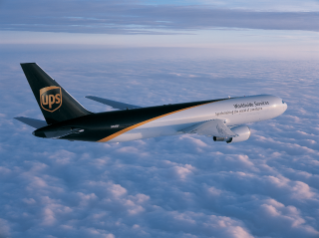
-
Expansion speeds up import delivery times and provides later pick-up cut-off times for exports
-
Enhancements to UPS healthcare cold chain allow for onsite storage of sensitive and critical shipments in temperatures as low as -20 Celsius
-
Move helps UPS customers meet demand in high-growth sectors such as complex healthcare and e-commerce
UPS has nearly doubled its daily parcel handling capacity at its operations hub in Changi Airport, Singapore.
The expansion, which increases the overall size of the UPS hub by 25%, allows the company to process 40% more import packages, while speeding up delivery times to almost 5,000 additional postal codes across the country.
UPS’ export processing capacity, meanwhile, is boosted by 45%, enabling extended pick-up cut-off times for all export services, allowing businesses time to fulfil more orders daily.
The company also enhanced its global healthcare cold chain by installing advanced frozen and cold storage solutions that allow temperature-sensitive healthcare shipments to be safely stored onsite.
“Due in part to the impact and ongoing legacy of the pandemic, we’ve seen a significant increase in demand for e-commerce and complex healthcare shipments in recent years, a trend we expect to continue for some time,” Chika Imakita, managing director UPS Singapore, said in a statement.
“The expansion of our hub at Changi Airport gives businesses faster and more flexible access to customers and suppliers across the globe while at the same time affording them the luxury of being able to plan their growth for the long term.”
The increase in import processing capacity means more customers can expect to receive their packages several hours earlier, by noon or 2 pm, UPS said. The export processing capacity expansion extends the pick-up cut-off time for all shipments by one hour, it added.
UPS said the expanded space features refrigerators and freezers that can maintain temperatures between -20 and 25 degrees Celsius to facilitate the temporary storage of shipments being transported via its global end-to-end cold chain.
These equipment will complement UPS’ latest healthcare innovation, UPS Premier, which the company describes as” a highly specialized, best-in-class shipping service for time-sensitive, temperature-sensitive and patient-critical products”.
Imakita said UPS Premier was launched in Singapore in December 2022 due to the time-sensitive demands of anti-coronavirus vaccines.
“As we saw from our delivery of Covid-19 vaccines, critical healthcare deliveries often need to be kept in very precise conditions, not just while they’re being transported, but also while they’re waiting to be transported – for the patient at the end of the delivery, this can literally be the difference between life and death,” added Imakita.
“Moving forward, Singapore will continue its role as a key part of our Asia Pacific operations. It connects our customers across Southeast Asia and Australasia with our global network, allowing for as soon as next-day delivery to destinations worldwide, including across Asia, Europe and the US.”
The move positions UPS to meet the growing demands of a digitally driven market, with e-commerce in Singapore expected to reach S$19.6 billion (US$14.47 billion) by 2027, according to a recent survey by Meta and Bain & Company.
Imakita was appointed as UPS’ managing director for Singapore and Malaysia in April 2022 to spearhead the company’s express delivery, logistics operations, and strategic growth initiatives across both markets. She is an experienced logistics professional with more than 20 years of industry and supply chain management experience.
UPS is one of the world’s largest companies, with 2022 revenue of $100.3 billion, and provides a broad range of integrated logistics solutions for customers in more than 220 countries and territories. The company employs more than 500,000 people.




